At Living Water Dentistry, our emergency dentist in Surrey is at your service all day. Unexpected emergencies can arise at any time, catching us off guard on a daily basis. We are available to assist you at any time and on any day. When your dental health is at risk, we will do everything in our power to get you treated as soon as possible. While dental emergencies are uncommon, they do occur, and it is critical to know how to care for your teeth in any situation.

Almost everyone has had a toothache at some point in their lives. They can cause intense pain and, if left untreated, can lead to life-threatening infections. As pain is not good sign, sometimes it can indicate a variety of problems, including tooth decay. While some toothaches can be managed without emergency treatment, but certain symptoms such as swelling, necessitate immediate attention.
When you have a toothache and require assistance, we are here for you. If you have lingering dull, aching pain or an acute pain that feels like an emergency, call us right away to get treated and avoid future dental problems.
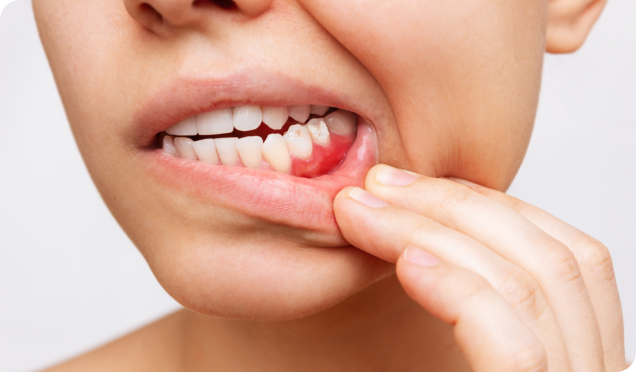

If an adult (permanent or secondary) tooth is knocked out, our experts and advanced technologies are ready to assist you right away. Depending on the severity of the injury, you may be able to replace the tooth, but be careful not to push it into the socket. The sooner you can do this — ideally within an hour — the better your chances of saving and restoring a knocked-out tooth. If you are unable to reinsert the tooth, place it in a small cup of milk or water with a pinch of salt. This will help preserve the tooth until it can be restored at our dental clinic in Surrey, Canada.
Note: Knocked-out baby teeth (also known as deciduous, primary or milk teeth) should not be put back in their socket. This can damage the developing permanent tooth underneath the gum.
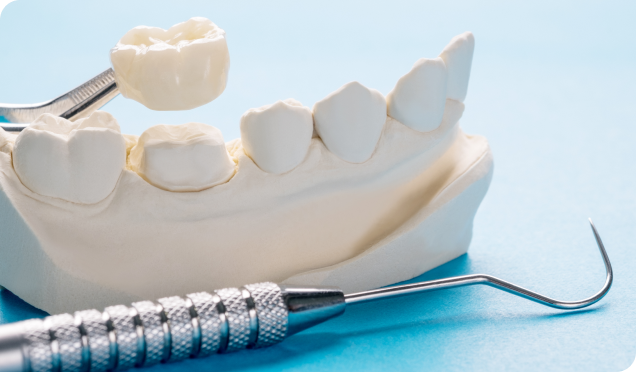
Have you recently lost a filling or crown? There’s no need to worry, here at Living Water Dentistry, we can take care of your tooth and restore your smile.
Patients frequently lose fillings or crowns while eating or chewing gum. When a dental restoration falls out, the tooth becomes sensitive and susceptible to decay or fracture. A cavity beneath the crown is often the cause of a crown falling off. The cavity alters the shape of the underlying tooth structure that supports the crown. If left untreated, the tooth may become more sensitive as debris and bacteria come into contact with the inner parts of the tooth. If a crown is missing for an extended period of time, neighbouring teeth may begin to shift into the space left by the missing crown.
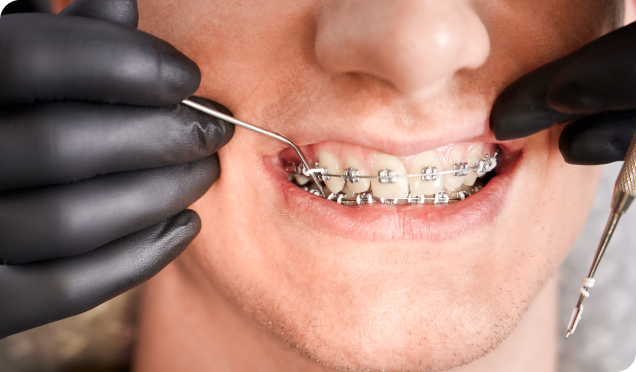
Braces are made of strong metal wires and brackets that are designed to withstand daily wear and tear from chewing, eating, and even talking. Even so, they can break or stick out, poking your cheeks and gums. This not only causes discomfort, but it can also slow or even reverse tooth alignment and straightening progress. If this occurs, try pushing the broken wire into a more comfortable position. If this isn't possible, use orthodontic wax, a small cotton ball, or a piece of gauze to cover the exposed end until you seek emergency. Don't cut the wire to avoid swallowing, no matter how inconvenient it is.
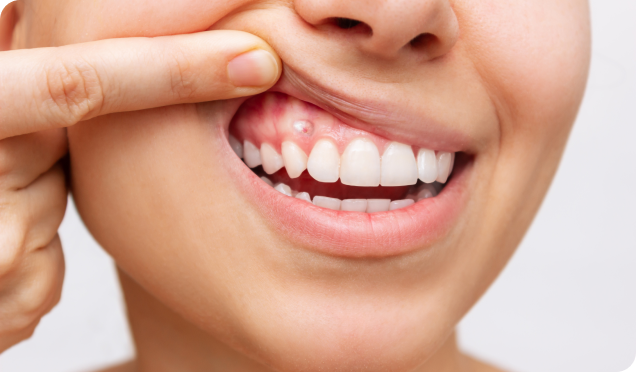
Infections in the mouth are dangerous, especially near the root of a tooth or in the space between the teeth and gums. If left untreated, these can spread to neighbouring teeth and gum tissue, as well as the rest of the body. If you are unsure whether you have an abscess? Examine your gums for any painful, pimple-like swelling. To avoid worsening oral health problems, contact our dental clinic in Surrey, Canada right away for emergency treatment. For temporary relief, rinse your mouth with a mild water solution and apply ice to the swollen area.
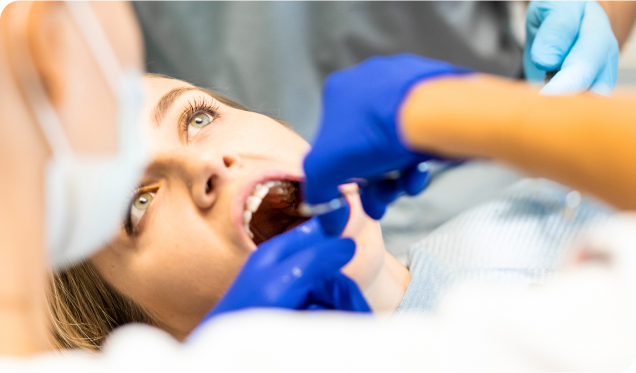
It is normal for the area to bleed and then clot, generally within a few minutes. It is abnormal if bleeding continues without clot formation, or lasts beyond 8 to 12 hours; this is known as post‐extraction bleeding (PEB), At that circumstance immediately contact your dentist. Meanwhile, apply pressure to the extraction site with a thick gauze pad by biting down on the gauze. Avoid rinsing, drinking, eating, sucking, spitting, and smoking.
It is normal for the area to bleed and then clot, generally within a few minutes. It is abnormal if bleeding continues without clot formation, or lasts beyond 8 to 12 hours; this is known as post‐extraction bleeding (PEB), At that circumstance immediately contact your dentist. Meanwhile, apply pressure to the extraction site with a thick gauze pad by biting down on the gauze. Avoid rinsing, drinking, eating, sucking, spitting, and smoking.
Find the tooth and rinse it gently in cool water. (Do not scrub or clean it with soap — use only water!) If possible, replace the tooth in the socket immediately and hold it there with clean gauze or a wash cloth. If you can't put the tooth back in the socket, place the tooth in a clean container with cold milk, saliva or water. Get to the Emergency Dentist immediately. The faster you act, the better your chances of saving the tooth.
Contact your emergency dental office as soon as possible. The baby tooth should not be replanted because of the potential for subsequent damage to the developing permanent tooth.
Some of the most common dental emergencies can be prevented by taking a few simple precautions. Avoid chewing hard foods, such as candy and ice, as these can cause your tooth to crack or chip. Also, be sure to wear a properly fitted dental mouth guard during sports and other high impact activities. Protecting your mouth on a daily basis can significantly reduce your risk of injuring your teeth, as well as your tongue, lips, and the walls of your mouth.
Sometimes a lost filling is the sign of a more significant problem. If the filling has come out because of more extensive damage to the bone or root, your dentist will discuss a plan for further treatment, which could include a crown or root canal.